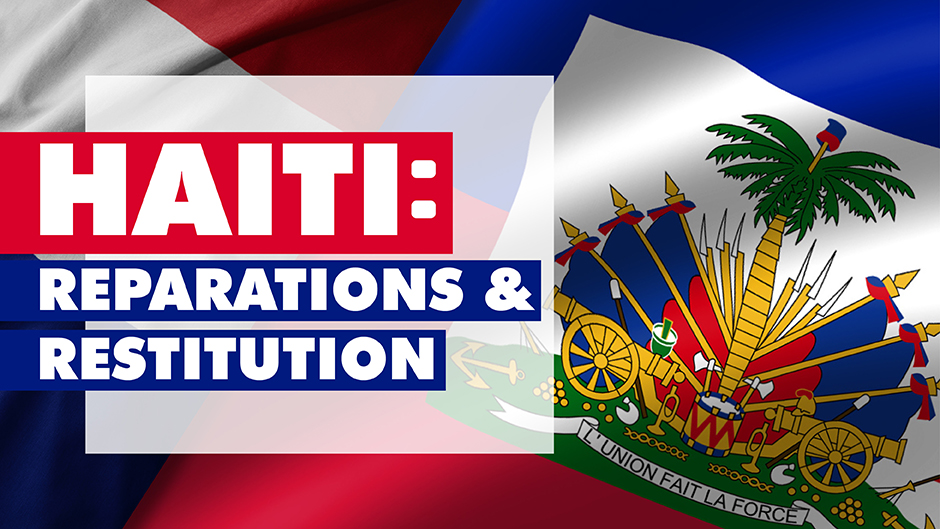Haiti's economy and development have been crippled for 150 years by the legal and economic consequences of the reparations payments France forced Haiti to pay after Haitians fought a bloody and costly war for independence from France, the impact of which continues to the present day.
The symposium illuminated the continued historical, political, social, legal, and economic challenges modern Haiti—and Haitians—face. The University of Miami Inter-American Law Review welcomed leading scholars who discussed various issues, from Haiti's sovereign debt to the mechanics of mounting an international legal case for restitution.
"Haiti is often characterized as a 'failed state,'" said Miami Law Professor and Symposium Faculty Chair Irwin Stotzky. "With all of its problems, how is it possible that Haiti shares an island with the Dominican Republic, a nation seen as a successful state, with health care coverage, public schools, and economic growth?
"The usual answers include corruption by its leaders, lucrative monopolies by elites who rarely pay any taxes, and treat the vast majority like slaves. The major cause of the problem, however, is linked to a ransom forced on Haiti by France after a brutal war of independence. The first people in the modern world to free themselves from slavery were forced to pay reparations to the nation they had defeated. This conference will address the legal, social, and political issues of reparations and restitution," said Stotzky.
Haitian historian and political scientist Professor Robert Fatton from the University of Virginia moderated a discussion on the historical, political, and social issues that have defined Haiti's past and present. Fatton was joined by sociologist Professor Alex Dupuy from Wesleyan University, historian Dr. Frédérique Beauvois, writer of "Between Blood and Gold: the Debates over Compensation for Slavery in the Americas," took part in the discussion along with human rights lawyer Brian Concannon, executive director for the Institute of Justice and Democracy in Haiti.
In addition to offering introductory remarks, Stotzky served as a moderator of a panel on legal claims and economic remedies stemming from Haiti's forced reparations to France. He was joined by immigration attorney and Miami Law Lecturer Ira Kurzban, Professors Mitu Gulati from the University of Virginia, W. Mark C. Weidemair from the University of North Carolina School of Law, and Günther Handl from Tulane Law School.
The Inter-American Law Review was also pleased to welcome Catherine Porter, the Paris-based New York Times journalist, whose series of investigative pieces on Haiti's indemnity to France to discuss her work covering Haiti's unique and troubling international relations with France and other western powers, past and present. Additionally, the symposium spotlighted former first lady of Haiti Mildred Trouillot and novelist Edwidge Danticat, the Haitian-American author whose works focus on issues of national identity, diaspora, power, and injustice, who will offer remarks on the impacts of Haiti's reparations on everyday Haitians and national development.
Since 1969, the Inter-American Law Review has been a leading voice in Western Hemispheric legal affairs as the United States' first law school journal dedicated to publishing legal academic research focused exclusively on the nations of the Americas and the Caribbean.
The symposium took place March 24, 2023, at the Lakeside Auditorium on the Coral Gables campus of the University of Miami from 12:30 p.m. to 6:30 p.m.
Please contact David Scollan '23, managing editor of the Inter-American Law Review and Symposium Chair, with questions: d.f.scollan@law.miami.edu.
Read more on studying International Law at Miami Law

